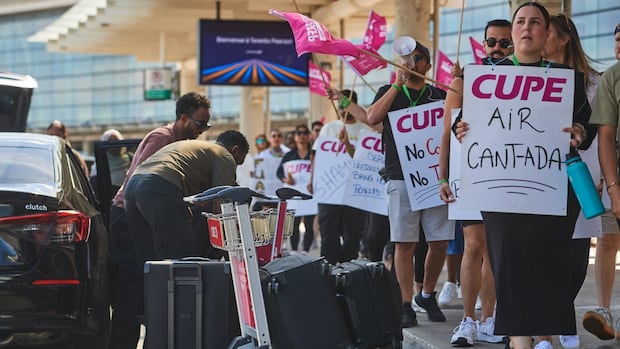Flight cancelled due to Air Canada strike? You may have more rights than you think

Travellers affected by the recent Air Canada flight attendants strike are facing disruptions to their travel plans, leaving many scrambling to rearrange their itineraries. As passengers seek answers about their rights, they may be surprised to learn that those departing from most European countries have more protections than those on domestic flights.
Rebooked Flights
Air Canada has announced that passengers impacted by flight cancellations between August 12 and August 23, who rebooked and paid for travel on other airlines, can submit claims for reimbursement. Passengers who opted for alternative modes of transportation, such as buses, are also eligible to submit claims. The adjusted policy aligns with Canada’s Air Passenger Protection Regulations (APPR), which require airlines to offer affected passengers a choice between a cash refund or a rebooked flight.
If a large airline like Air Canada cannot rebook passengers on a partner airline within 48 hours after the original departure time, the carrier must attempt to rebook passengers on any available airline, even a major competitor. Failure to comply with these regulations can result in hefty fines, as demonstrated by a recent penalty imposed on WestJet for similar violations.
Despite Air Canada’s efforts, some passengers may have found themselves stranded due to the lack of alternatives available during peak summer travel season. This highlights the issue of limited competition in Canada’s airline industry, as noted by consumer advocate Geoff White.
Passengers from EU Countries
Passengers departing from European Union-member countries have additional rights and protections compared to those covered under the APPR. EU rules provide compensation for added expenses and flight disruptions caused by cancellations, including those resulting from strikes. Passengers departing from the UK or EU countries can claim up to €600 ($965 CAD) or £520 ($970 CAD) respectively.
While the proposed changes to the APPR aim to strengthen passenger protections, they have yet to be enacted. These changes include requirements for airlines to cover hotel costs and incidentals during flight disruptions, including those caused by labour disputes. The delay in implementing these rules has left passengers grappling with the current Air Canada strike without the additional support they would have provided.
It is essential for passengers to be aware of their rights and options when faced with flight disruptions, especially during times of labour strikes. Seeking compensation and reimbursement for added expenses can help alleviate the inconvenience caused by unexpected travel changes.
The delay in implementing new air passenger rights rules has left many passengers frustrated and seeking answers from the regulatory agency. Despite numerous inquiries, the agency has failed to provide a direct response as to why the process is taking so long.
Passengers who feel that their rights have been violated by Air Canada or any other airline are encouraged to file a complaint with the Canadian Transportation Agency (CTA). However, they should be prepared for a lengthy wait for resolution, as the CTA reported a backlog of over 87,000 air passenger complaints in June.
It is clear that the current system is overwhelmed and in need of improvement to better serve the rights of air travelers. In the meantime, passengers are advised to stay informed and advocate for their rights when faced with issues during air travel.




